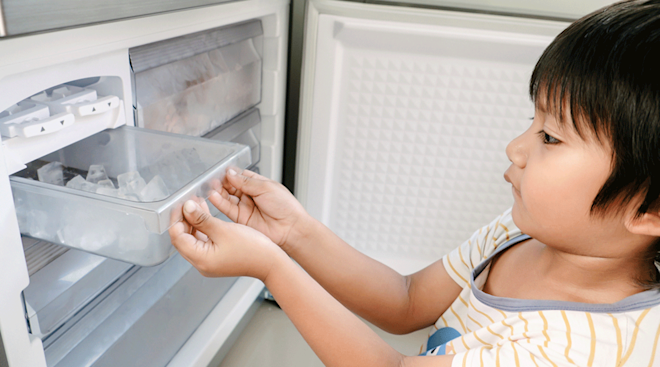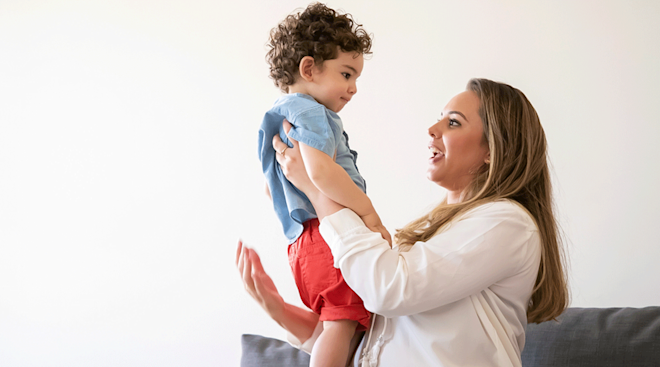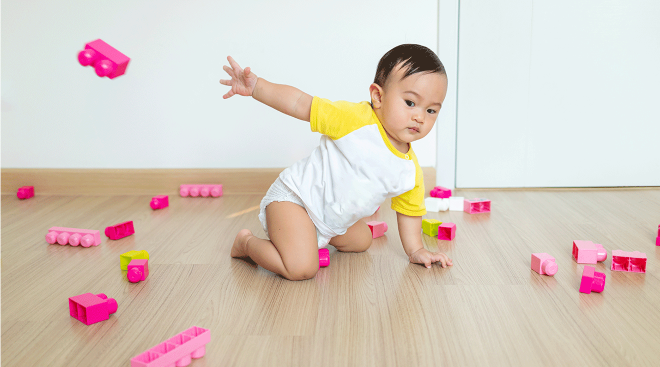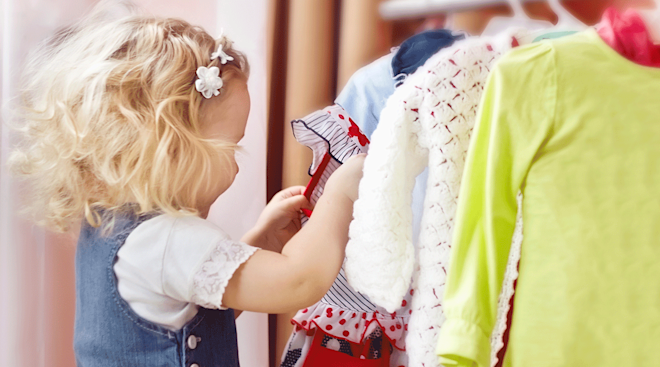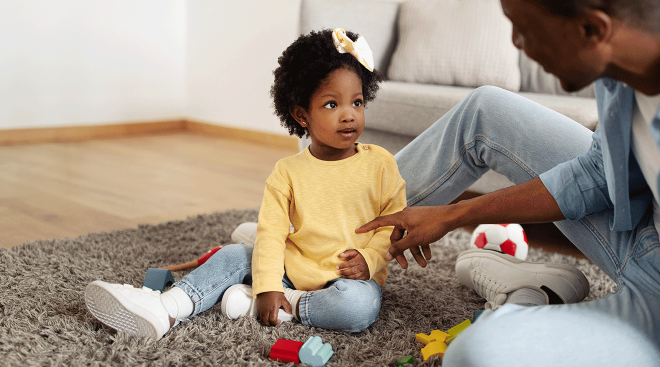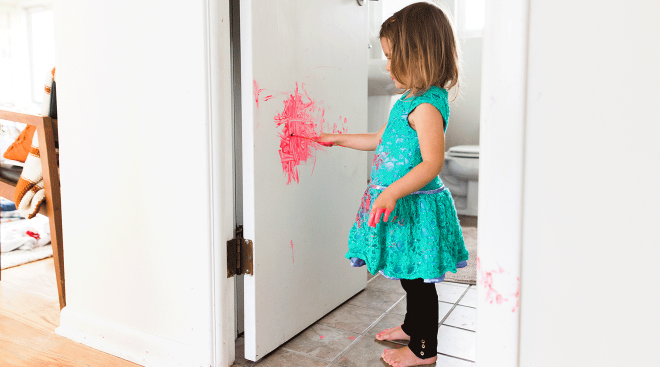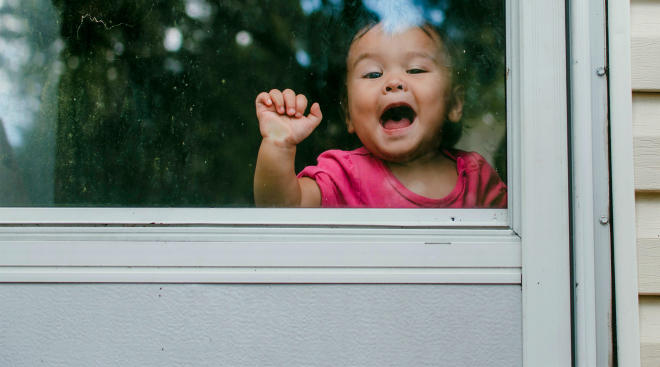How to Deal With Sibling Rivalry
From epic fights over toys to bickering on long car rides, sibling rivalry may be the one thing every family seems to have in common. Even as an adult, you may still feel annoyed when your sister rummages through your closet or your brother monopolizes the family text chain. With sibling fights being so pervasive, is there anything you can do to make the bonds between your kids less conflict-ridden? Read on to learn what sibling rivalry is, why it’s normal and how to make sure it’s healthy.
Are you reading this while listening to siblings fight on repeat? (“Mine!” “No, mine!”) Don’t worry. Conflict is a natural part of sibling relationships—and learning how to advocate for themselves and their needs is just one important lesson your little ones are learning (again and again) from these same-old fights. “Disagreements, boundaries and making your needs clear are all things we do throughout life, and our siblings are often the first people we learn these skills with,” says Rebekah Springs, a licensed marriage and family therapist in Portland, Oregon.
Why do siblings fight?
Toys, screen time, attention from parents—why don’t siblings fight? But ongoing sibling conflict is often rooted in resource and territory battles—like tussles over toys, snacks and the attention of Mom and Dad—and may give insight into how you can handle the fights that arise, Springs says. One common reason siblings squabble is over what they perceive as fair treatment from parents and other caretakers. “I emphasize that parents should take their focus off of ‘fair’ and focus more on making sure each sibling gets their needs met, since siblings have different needs,” Springs says. This might mean carving out special quiet time to cuddle with a sensitive child, or giving your energetic toddler your full attention as you engage in play. “Focusing on each child as an individual can actually make sibling rivalry less likely to occur.”
When does sibling rivalry begin?
It may set in as soon as you tell your child that a baby brother or sister is joining the family. “Kids under the age of 5 get very jealous very quickly,” says Travis McNulty, a family counselor in St. Petersburg, Florida. Talking through expectations, even during pregnancy, can be a good way to help your child understand the shift that’s bound to happen when a baby joins the family. “It’s easy for families to say they’ll love both kids equally, and of course they will,” McNulty says. “But kids are very literal, so when they see baby brother getting all your attention, they may feel like they’ve been replaced or forgotten.”
Does it seem like your kids are at each other’s throats all the time? It may be helpful to listen to the context of the siblings’ fight. While you just hear yelling, what may be happening is simply conflict resolution, with both parties learning boundaries and acceptable behavior. “Kids resolve things very differently than adults do, and stepping in too soon may actually escalate tensions, especially when kids feel like their parents are refereeing the fight or deciding who ‘won,’” Springs says. Instead, she suggests having some ground rules laid for all family members—for example, no hitting, bitting, hurting others or calling them names, ever. It’s also smart to give your kids opportunities to remove themselves from a conflict. A child can always ask for space, for instance, and asking for space shouldn’t be considered rude or mean.
While it’s easy to say “be nice to your sister,” experts say those comments may also escalate tension. “Do we always want to be nice to people in our lives? Not really,” McNulty says. “Letting your kids know it’s okay to be angry or frustrated and that there are ways to appropriately handle those feelings can help teach conflict resolution.” So if you hear your kids tussling, instead of asking your oldest to be nice, try to sportscast what’s going on. Saying something like, “wow, it seems your little sister really wants your toy and you want to use it too. What are some ways we can handle that?” can help your oldest think in problem-solving mode. You may need to coach them on options: You can play with it with your sister, bring it to another area of the house and play with it by yourself, or offer your sister an alternative toy.
“Parents think they can divide their attention equally, but that’s impossible,” Springs says. Another way to frame your attention divide is to tell your children, “everyone gets what they need,” she suggests. “Making it clear you’re always there for your child’s needs can make them feel secure in your affection.” When you’re feeling overwhelmed and pressed for time, scheduling just five or 10 minutes with one child at a time—even if that’s a conversation in the car en route to school—can keep your bond strong and the negative sibling rivalry at bay.
But what if sibling rivalry starts when your second child is just a newborn? Adjusting to life with a new baby, especially if your eldest is under the age of 5, can be tough. “Mom and Dad are their whole world, so when a sibling encroaches on the amount of time they get to spend with their parents, they look at the brother or sister as threatening,” McNulty says. Remind your first born that they got that much attention when they were a baby, and think of ways they can help you to make them feel needed and included. Even a small toddler can bring you a diaper when you’re changing the baby or sing a song to baby.
The best way to help siblings get along and reduce negative sibling rivalry is to think about how you and your partner (or whoever else may live in your house) manage conflict yourselves. “Modeling disagreements, including apologies, can help your child learn it’s okay to be angry with someone you love,” McNulty says. Demonstrating appropriate behavior—including respect for the other person and using your words to explain your anger and frustration—can all be valuable lessons for your young kids.
In your quest to help siblings get along, it’s also important to pick your battles. Do your kids always seem to fight over one particular toy? It might be time to break down and buy two—not just because it’ll keep the peace, but because it’s important to recognize that sharing is a learned skill, and your little ones might not be there yet.
But if sibling rivalry seems to constantly lead to conflicts, it may be time to consider family dynamics. Do the kids always seem to fight right before dinner? Having a more structured activity, like sitting down and coloring near you as you meal prep, may be a smart move. Is one kid constantly the instigator? Maybe they’re frustrated about something at school and need a little more support from you or your partner for the next few weeks. But there’s also no shame in asking for help from a counselor or parenting coach. “Sometimes, a few sessions will point to dynamics you may not have seen, or give you some tools to work with that may make family life easier,” Springs says. Finally, remember that while you may be eager to stop sibling rivalry, a little sibling conflict is normal and may help your child succeed in peer and workplace relationships later in life.
Please note: The Bump and the materials and information it contains are not intended to, and do not constitute, medical or other health advice or diagnosis and should not be used as such. You should always consult with a qualified physician or health professional about your specific circumstances.
Plus, more from The Bump:
Navigate forward to interact with the calendar and select a date. Press the question mark key to get the keyboard shortcuts for changing dates.




































